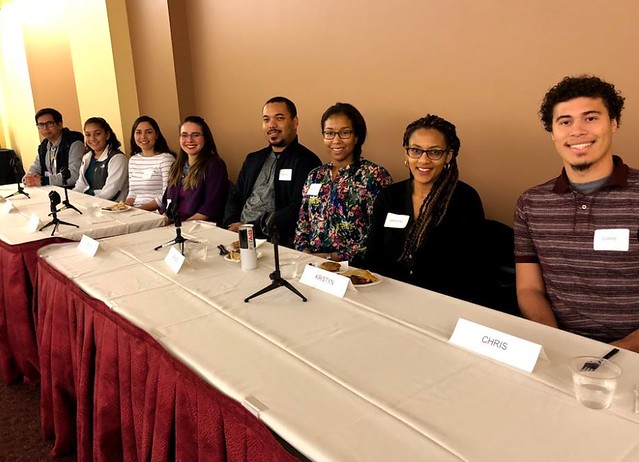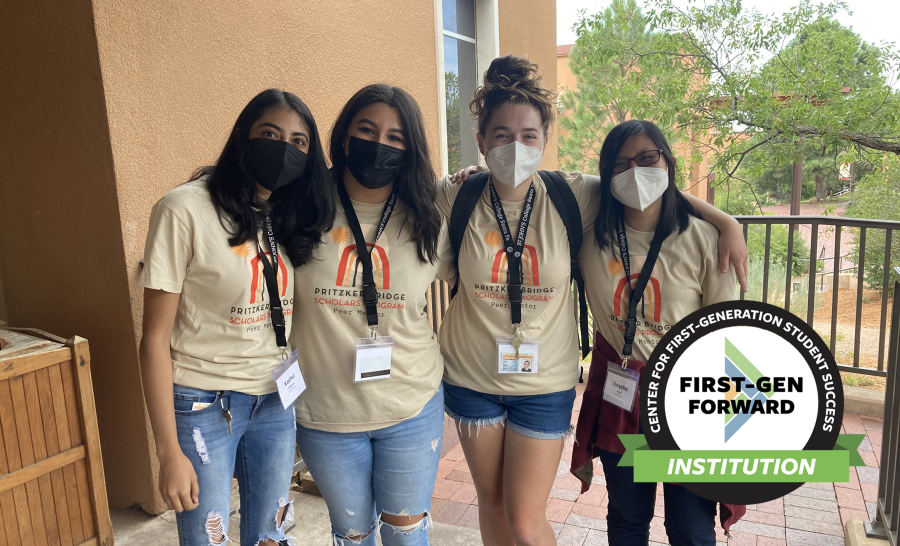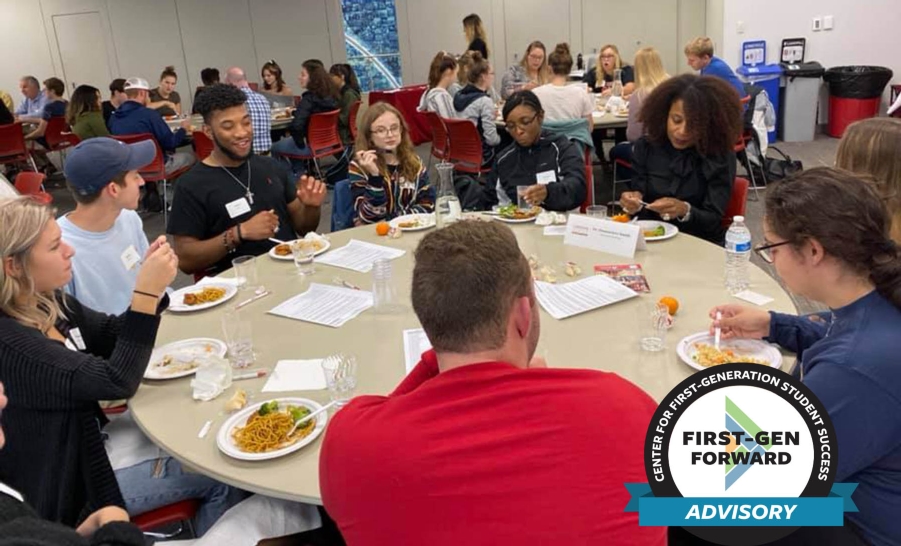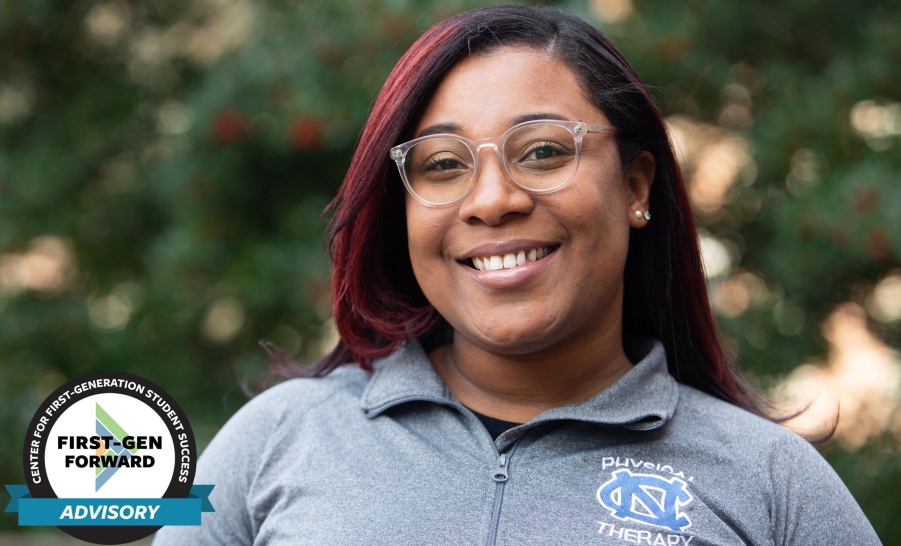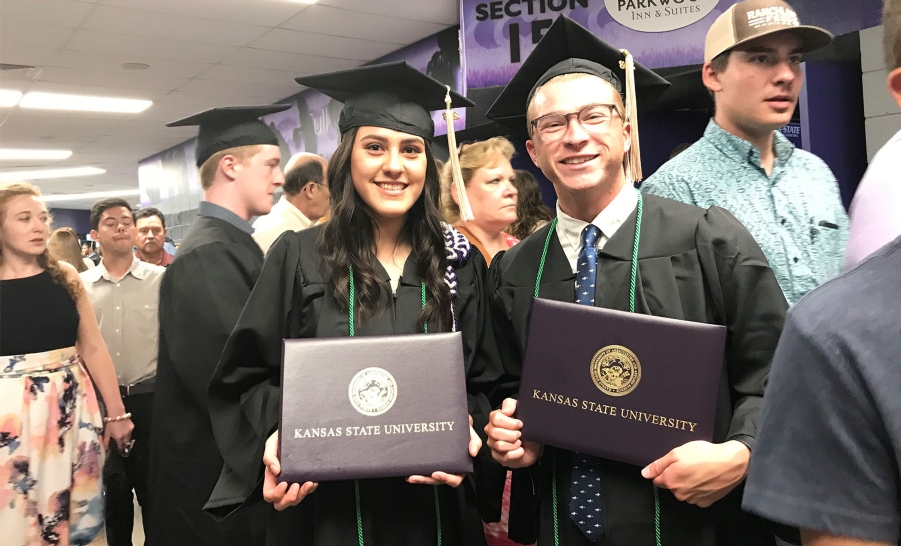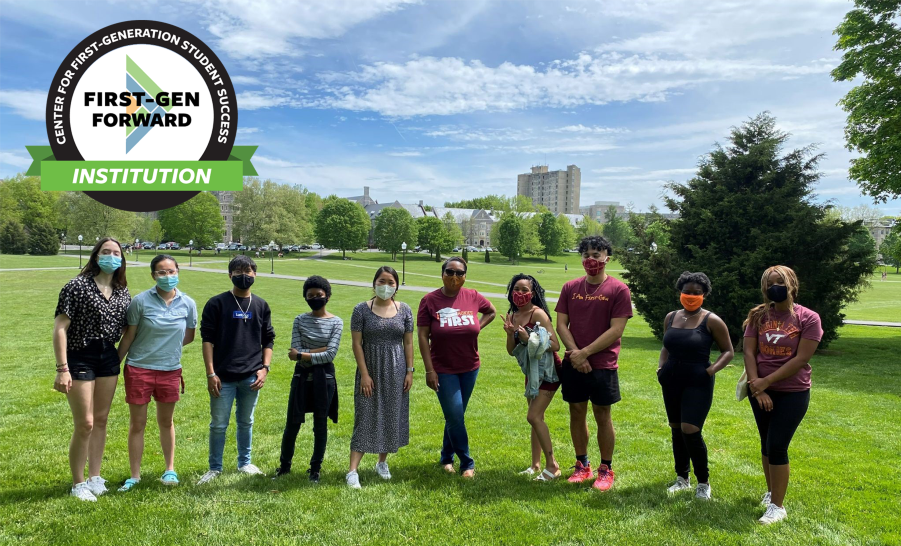Alumni Involvement: Building Support and Programming
Andrea Jackson M.S., / FirstGen Forward / October 15, 2018
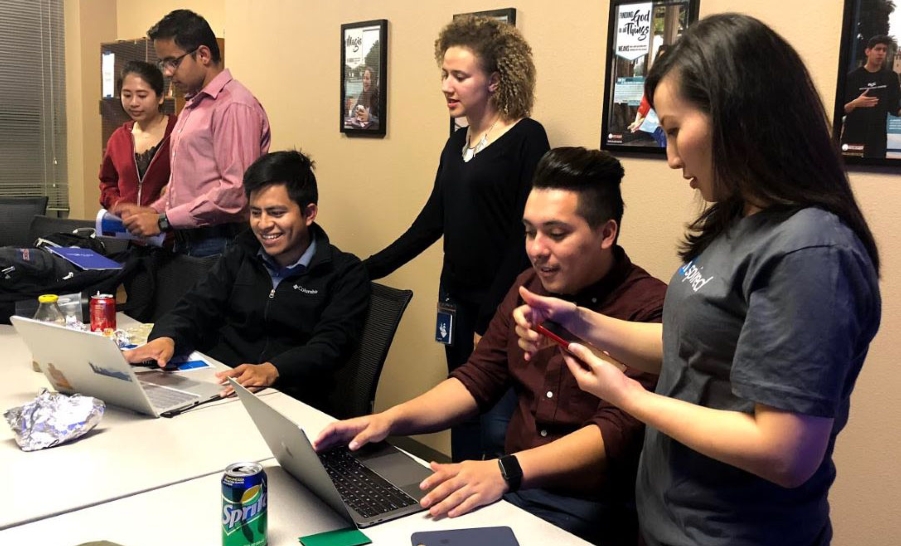
At Santa Clara University, the LEAD Scholars Program has taken an “it’s not four years, it’s for life” approach to engaging our alumni base. As we all may realize, first-generation students experience many 'firsts' and these experiences often recur throughout other opportunities and career milestones. We intentionally engaged with first-generation alumni to facilitate continued professional and personal development programming, because we did not want the conversation to just surround donations. Through this connection, first-generation alumni had the opportunity to give back to current students in many forms.
An invested alumni base is key for any program, so to start, you have to make sure your current students are highly engaged in your program and are getting the most out of it. Those students become your committed alumni base and are willing to spread the word about engagement and social opportunities to their fellow peers. But what about those students who just fulfill program requirements, go about their college experience and graduate with no real affinity? Rebuild that relationship. When the LEAD Scholars Program first decided to further the alumni efforts, we started with taking groups of alumni out for lunch over the summer. This allowed us to reconnect with them, update them on the program, introduce them to new staff members, and hear direct feedback on their needs and interests and what they would be willing to invest in. From those lunches, we developed a great plan to move forward in the upcoming year, and years to follow.
Alumni are also a great resource to reevaluate programming for your current students and obtain new ideas. For example, if alumni think they could have used a financial literacy program or series, why not start implementing that for your current students? Alumni are great at giving you that outsider perspective of how prepared they felt after college and what additional information would have been helpful as they encountered “real life” experiences.
Below is an outline of the different programs and opportunities the LEAD Scholars Program offers to engage and support our alumni base.
Alumni Panels: Every year we host an Alumni Panel where 6-8 alumni come back to campus, share their tips and tricks on surviving college, what they wish they had done retroactively, and advice for life after graduation. This panel is required for all first-year students and is open to all other years. It is a great way for a small number of alumni to give back for a few hours, share their experiences, and get to know a new class.
Mentoring Circles: We thought about having a 1-1 mentorship program, and yet feedback from others showed that those relationships were difficult to sustain. Instead, we created mentoring circles which are offered twice in our 10 week quarter. While student participation is required, this format allows alumni to select from various meetings. At each meeting, we provide dinner for all attendees. During dinner, a staff or alumni presenter leads a short presentation on a professional development topic, such as resume writing, interviewing skills, and LinkedIn profile creation. Throughout the presentation, alumni are asked to share their experiences on a particular topic. There is ample time for our students to break off into small groups with alumni to practice or review the topic of the meeting and get real-time feedback. There is no pressure of sustaining a 1-1 relationship in these circles. Organic, informal relationships are built in these circles, and we find that our alumni come back again and again.
Professional Development: Alumni still need support. Let’s be honest, everyone can always use refreshers or feedback on their careers, professional and personal development. We offer workshops specifically for alumni. These workshops range in topic from building your network, how to navigate the next steps in your career, personal branding, and financial planning.
Socials: We have two main social events each year, a celebration during the campus-wide Grand Reunion, and our Senior & Alumni Happy Hour. Our Grand Reunion Celebration is a way to engage alumni who are already celebrating their reunions on campus and often marks a milestone for our program, like our 15th Anniversary this year. It is also a time for us to share program updates and invite alumni to get involved in our various offerings. Our Senior & Alumni Happy Hour occurs toward the end of the school year at an off-campus venue and is a way to welcome the senior class to their alumni status and encourage them to network with other alumni.
Guest Speaking in Courses: The LEAD Scholars Program offers six sections of a First-Year Seminar, five vocational exploration courses, a diversity in higher education course and an advanced writing and research course. There are many opportunities for guest speakers, and often we invite alumni to share their journeys with our students. We have explored connecting by Skype and Facetime, which has made connecting with guest speakers easier than ever.
Snack Sponsors: Do have alumni that are far away or are unable to get to campus? Have them be a snack sponsor! We are fortunate to have the LEAD Commons, space where students can hang out, study, take a nap, and use computers and printers. We try our best to provide snack throughout the year, but let’s be honest, we do not have the budget to keep that going. In response, we invite alumni to be snack sponsors for our LEAD Commons. We request a minimum of $50 and with their permission, we print a bio and photo of the alumni that donated the snacks to demonstrate to our students that alumni do give back!
Donations: Of course we all want donors to ‘make it rain’ for our programs, but realistically it helps to focus donation efforts on specific things you are doing. In our program, we are fortunate to have money for fellowships, micro-grants, and scholarships for our students.
-
Fellowships support students co-curricular experiences such as study abroad, unpaid internships, immersion programs, research, etc.
-
Microgrants support day-to-day living expenses such as replacing broken laptops, glasses, and emergency flights back home.
-
LEAD Scholarships assist with tuition-related expenses.
When we ask alumni to donate, they are donating right back to the first-generation college students they once were. Don’t have these donation options? Again, pick one or two things that can really speak to alumni to give back to, versus a general pool that will be used to ‘someone's discretion’.
Host Job Site Visits & Tours: We love giving students a sense of what the working world actually looks and feels like. Instead of bringing alumni to campus, take your students to those workplaces! We have had alumni invite our students on tours of their companies and organize panels with other employees. This is a great way for companies to interact with diverse student groups, allows alumni to engage without leaving work, and provides LEAD students insight into the work world.
Social Media: In this day and age, it is a must. We realize that each age group has different a social media preference, so as difficult as it may be, having multiple social media accounts (LinkedIn group, Facebook group, Instagram, etc.) is important to reach as many people possible. Take it slow in the beginning. Maybe it is the same post across all accounts to start, and as you get the hang of it, getting more creative and intentional for each account is the way to go.
This is a great option for getting all alumni passively engaged. Maybe alumni are not in the best place to give back right now: new job, starting a family, etc. But when they do feel they are ready, they have already seen all the great things your program continues to do and have an easy way to make contact.
Keep It Personal: Finally, the most important piece to alumni engagement is keeping it personal. While it might seem unrealistic to personally email everyone about every program you have going on, but it does not have to be so daunting. For example, encourage alumni to reach out to your office with updates on what’s going on with their lives to be added to a newsletter. This way they are doing half of the reaching out. Also, follow alumni on social media! You can passively see what they are doing and engage more frequently through those outlets. You can also do more personal outreach through email if the life event calls for it. Regardless of how you go about it, everyone likes to feel remembered, supported, and not just someone on a mile long email contact list. The more connected you are throughout their life, the easier it is to have them to re-engage with your program.
Hopefully, this has sparked some ideas about alumni engagement and programming that fit the needs of your program! The LEAD Scholars Program is here for any questions you may have regarding our alumni engagement or our curricular and co-curricular experiences for our current students. It takes a village, and we are excited to see the first-generation community grow and serve as resources to one another.
